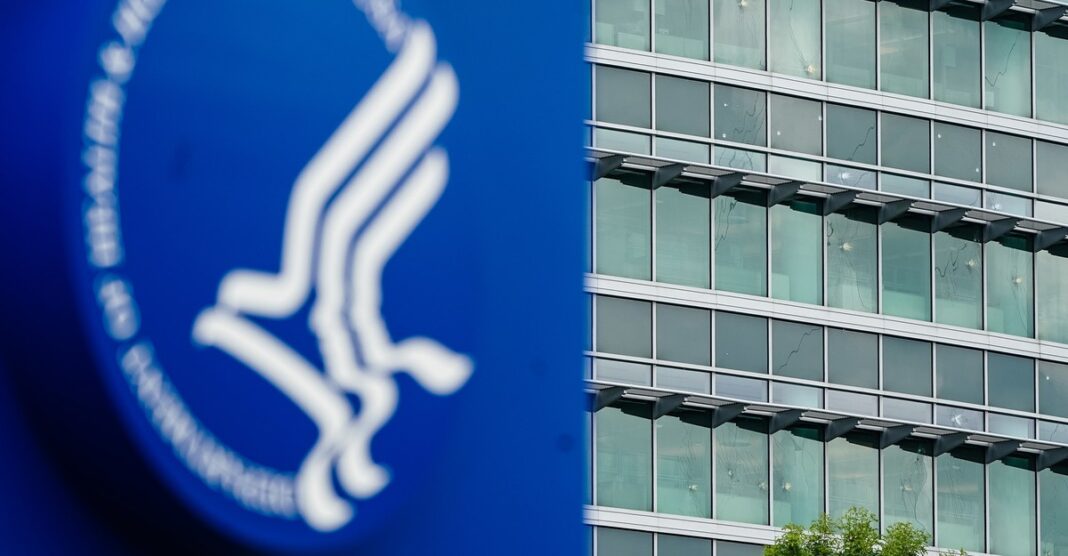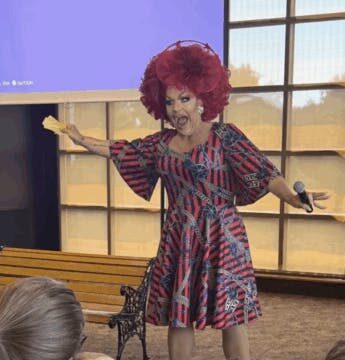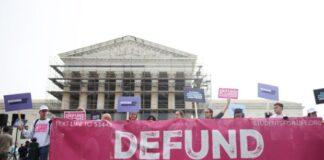When gunfire pelted the Atlanta-based headquarters of the CDC yesterday, hundreds of employees were inside the campus’s buildings. The experience was terrifying. But some of the employees were not particularly shocked. “I’m actually surprised it didn’t happen sooner,” a nearly 20-year veteran of the agency told me. (She, like others I spoke with for this article, requested anonymity out of fear of losing her job.)
This was, in one sense, the first attack of its kind on the CDC. The shooter, whom law-enforcment officials have identified as Patrick Joseph White, a 30-year-old resident of an Atlanta suburb, was reportedly fixated on the idea that the COVID-19 vaccine had made him depressed and suicidal. No employees were injured by the bullets that entered the buildings, according to a CDC representative. But an Atlanta police officer named David Rose was shot and later died from his injuries. White, too, was found dead—fatally shot—at the scene. (It is not yet clear if his wound was self-inflicted or if he was killed by police.) When he took aim at the agency on Friday afternoon, he was near a corner where a lone man stands holding anti-vaccine signs nearly every day, several CDC staffers told me.
In another sense, public-health workers have been facing escalating hostility since the early days of the pandemic. In 2020, armed protesters gathered on the Ohio Health Department director’s front lawn, and the chief health officer of Orange County, California, was met with death threats after issuing a mask mandate. She had to hire extra security and was eventually driven to resign. Anthony Fauci, who served as the director of the National Institute of Allergy and Infectious Diseases during the country’s initial COVID response, has faced regular death threats since 2020. Nearly a third of state, local, and tribal public-health workers reported facing some sort of workplace violence in a 2021 survey.
Last year, Fauci told CNN’s Kaitlan Collins that threats of violence to public-health workers correlate with verbal attacks from high-profile politicians and media personalities. “It’s like clockwork,” he said. In the second Trump administration, those attacks have become commonplace—the very selling points, even, that have helped a number of Trump’s health appointees gain their positions. In 2024, when announcing his own pick for CDC director, President Donald Trump maligned the CDC and other federal health agencies, accusing them of having “engaged in censorship, data manipulation, and misinformation.” Robert F. Kennedy Jr. was already a longtime anti-vaccine activist when he took the mantle as America’s health secretary; he has compared vaccinating children to the abuses of the Catholic church. During his own 2024 presidential run, he promised to “clean up the cesspool of corruption at CDC.”
“Normally, threats to public servants aren’t inspired from leadership of their own organization,” another CDC staffer said in a group chat among current and former employees. According to an MSNBC report, during an all-hands meeting today, CDC staff blamed the shooting at least partly on Kennedy’s combative attitude toward the agency. “We need them to stop fanning the flames of hatred against us, stop spreading misinformation,” one employee wrote in the meeting chat, naming Kennedy in the same comment. “We will not be safe until they stop their attacks against us.”
The shooter appears to have brought five guns to the scene, and at least four federal buildings were struck, by dozens of bullets overall. In the hours immediately after the shooting, while many CDC employees remained barricaded in offices and marooned in conference rooms, they heard nothing from Kennedy or Trump. Last night, Susan Monarez, the newly confirmed CDC director, issued a short statement reiterating the basic facts of the shooting. “We at CDC are heartbroken by today’s attack on our Roybal Campus,” she wrote. “Our top priority is the safety and well-being of everyone at CDC.” Late this morning, Kennedy sent an email to the entire staff of the Department of Health and Human Services offering support and prayers. In a post on X at around the same time, he wrote, “No one should face violence while working to protect the health of others.”
This evening, Monarez sent a more substantial email pledging to support the CDC during its recovery and noting its resilience. “We have faced adversity before, and we will do so again, drawing strength from our shared commitment to public health,” she wrote. The president has not yet made a statement about the attack. (The White House and HHS did not respond to requests for comment.)
To the CDC employees I spoke with, the sluggish response is the latest episode in the administration’s escalating abandonment of the agency. Since January, the Trump administration has hit the CDC with massive layoffs, proposed halving its budget, and forced changes to internal policies governing the fundamentals of its scientific work. Earlier this year, Kennedy purged the committee that advises the CDC on vaccine recommendations. Just this week, he canceled nearly $500 million in federally funded research on mRNA vaccines—widely considered among CDC employees and public-health experts to be the greatest domestic triumph of the U.S. pandemic response—stating incorrectly that they cause more risk than benefit against the flu and COVID.
For CDC staff, the wider threat does not seem to have passed. This evening, a group of CDC employees were trading tips on peeling off their old parking decals after the agency’s security office reportedly asked staff to remove them from their cars. One person suggested covering them with other stickers; another recommended loosening them with cooking oil.
Even people who have volunteered for risky missions in their public-health work are still getting used to the idea that the danger has arrived at the home front. “I’ve put my life on the line for this agency, responding to outbreaks in some of the most dangerous parts of the world,” a 13-year veteran of the agency told me. “I didn’t expect to face the same risks at the Atlanta campus as I faced in South Sudan.”



